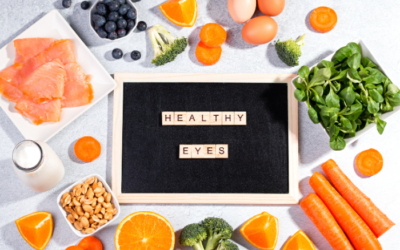Insomnia and Trouble Sleeping
Insomnia is the most common sleep issue and symptoms include trouble falling asleep, difficulty staying asleep, and having dream-disturbed sleep. Insomnia can cause symptoms such as lack of concentration and focus, depression, anxiety, daytime sleepiness, irritability, memory issues, worries about sleeping, and increased errors and accidents.
Natural Approaches for Insomnia
You don’t have to accept insomnia. There are several steps you can take to deal with it:
- Avoid eating two or three hours before bedtime – especially avoiding sweet and greasy foods.
- Cold drinks, caffeine, nicotine, and alcohol should be avoided, especially before bedtime.
- Eating foods rich in magnesium like almonds and bananas have been shown to support sleep.
- Gentle Yoga and stretching coupled with meditation can help relax the mind.
- Aromatherapy, using lavender essential oil, has been shown to aid in sleep and is a natural way to get those zzz’s.
- Acupuncture and massage therapy also promotes relaxation.
Avoid electronic devices
More and more of us are spending an unparalleled amount of time in front of screens. Not only can reading a work email just before bed cause stress and worry which can affect falling asleep but the blue light from electronic devices suppresses the production of melatonin. It is believed that the shorter wavelengths in blue light is what causes the body to produce less melatonin because the body is more sensitive to this type of light. So avoid the use of electronic devices before bed!
Eat for a better sleep
Eat these foods before you nap or count those sheep tonight:
- Salmon, halibut, tuna: Most fish will work, but these are richest in vitamin B6, which is needed to make melatonin (the sleep hormone). Bananas and chickpeas are also a good source of vitamin B6 for those who prefer not to eat fish or have allergies.
- Tart cherry juice: Studies show that adults with chronic insomnia benefited from a cup of tart cherry juice twice a day. This juice is rich in melatonin and has been shown to aid sleep.
- Yogurt or milk: Calcium deficiency has been linked to difficulty falling asleep. Increasing calcium in your diet can help aid sleep. Looking for a vegan option? Try collard greens, kale or a plant-based calcium supplement.
- Jasmine rice: Studies show that those who eat a meal that included a high glycemic-index (GI) food such as jasmine rice fell asleep faster than those who ate lower GI long grain rice. It is believed that high GI meals may increase the ratio of tryptophan which is a sleep-inducing amino acid.
Dietary Supplements to encourage Quality Sleep
Melatonin supports the normal sleep/wake/sleep cycles associated with circadian rhythms. This is important because these rhythms determine the number of physiological changes including heart rate, cell metabolism, and oxidative stress.
L-Theanine is an amino acid found in green tea that helps with relaxation. L-theanine supports normal melatonin and 5-HTP functions used for mood support and quality sleep, especially REM cycles and deeper sleep throughout the night.
Valerian has been shown to support deep sleep, speed falling asleep, relieve emotional stress, and help with the overall quality of sleep.
Supplements such as magnesium and calcium combined can boost sleep, melatonin supports normal sleep/wake/sleep cycles, and L-theanine, an amino acid from green tea can help boost REM cycles and deeper sleep at night.
Chinese Herbs and Nutrients for Supporting Sleep
In traditional Chinese medicine sleep issues usually occur when someone is experiencing stress, anxiety, or agitation; called “disturbed shen.” Shen is the spirit of a person and their emotional state should exhibit radiance, calm, and balance. When someone has “disturbed shen”, remedies will look to “calm the shen.”
Acupuncture and massage therapy promotes relaxation and are often used to help with sleep issues. Meditation is also helpful to reduce stress. In addition, dietary changes such as not eating two or three hours before bedtime and avoiding greasy or sweet foods is important. Cold drinks, caffeine, nicotine, and alcohol should be avoided as well.
TCM herbal formulas that help regulate the sleep pattern are often designed to “calm the shen.” Seven Forests Zizyphus 18 is an herbal formula which is an excellent choice for insomnia and resting the shen at night. Suan Zoa Ren Tang Pian is another good choice for insomnia caused by stress and anxiety. Suan Zoa Ren Tang Pian is used to induce normal sleep with the feeling of being refreshed and rejuvenated upon awakening.
Trouble sleeping while traveling?
Traveling is fun but can also affect your sleep with jet lag, a common issue when traveling and occurs when the body’s internal clock and circadian rhythm is thrown off balance when traveling across time zones.
Jet lag can cause symptoms such as fatigue, loss of short-term memory, diarrhea and constipation. Jet lag is a temporary sleep disorder that can occur when traveling over time zones, and this can make it difficult for the body to adjust circadian rhythms and sleep cycles.
Ways to Help Combat Jet Lag While Traveling
There are some simple ways to avoid jet lag:
- Get adequate daylight on arrival, as it is a powerful stimulant to balance the body’s internal clock
- Avoid alcohol or caffeine at least three hours before sleep
- Eat vitamin B rich foods such as beets, bananas, strawberries, mung beans, and broccoli
- Try acupuncture
- Try a supplement that can support calm, relaxation, and sleep.
Insomnia, jet lag, trouble falling asleep and trouble staying asleep can all begin to affect your overall health and wellness. Taking natural approaches can make all the difference when you are experiencing sleep difficulties.
Why can’t I find my favorite sleep supplements?
You may have noticed that your favorite sleep supplements are no longer available to purchase. That is because some sleep supplements contain an ingredient called, phenibut or 4-amino-3-phenylbutyric acid HCl. The FDA has made a decision that phenibut or 4-amino-3-phenylbutyric acid HCl in synthetic forms is now being reclassified because it does not meet the definition of a dietary ingredient and cannot be used in dietary supplements.
Some of the popular products that contain phenibut include Kavinace OS by NeuroScience Inc, Phenitropic, Phenitropic PM and Phenitropic Ultra PM by Biotics Research, and Gabacore by Apex Energetics. These manufacturers intend on reformulating these products and that should take two to four months.
In the meantime, we recommend the following sleep support supplements as alternatives:
Seriphos
Sedalin
Nardova
Zizyphus 18
Melatonin
If you have any questions about this, please do not hesitate to call our clinic to speak to one of our practitioners regarding this.

Jemile earned a degree in Food Studies and Writing and has worked for almost 23 years in the medical and health industries. She has been a digital marketing consultant for Acupuncture Atlanta since 2011 as the social media manager and content manager. Writing has been a childhood dream for Jemile and writing daily for clients in the health, wellness, food, and art industries have been phenomenal. Jemile is originally from Brooklyn, NY, and lives in the Hudson Valley, NY. She lives with her husband, two daughters, her dog, and two fish. You can contact Jemile via Linkedin, her mom blog, or her website, lunaroseconsulting.com



